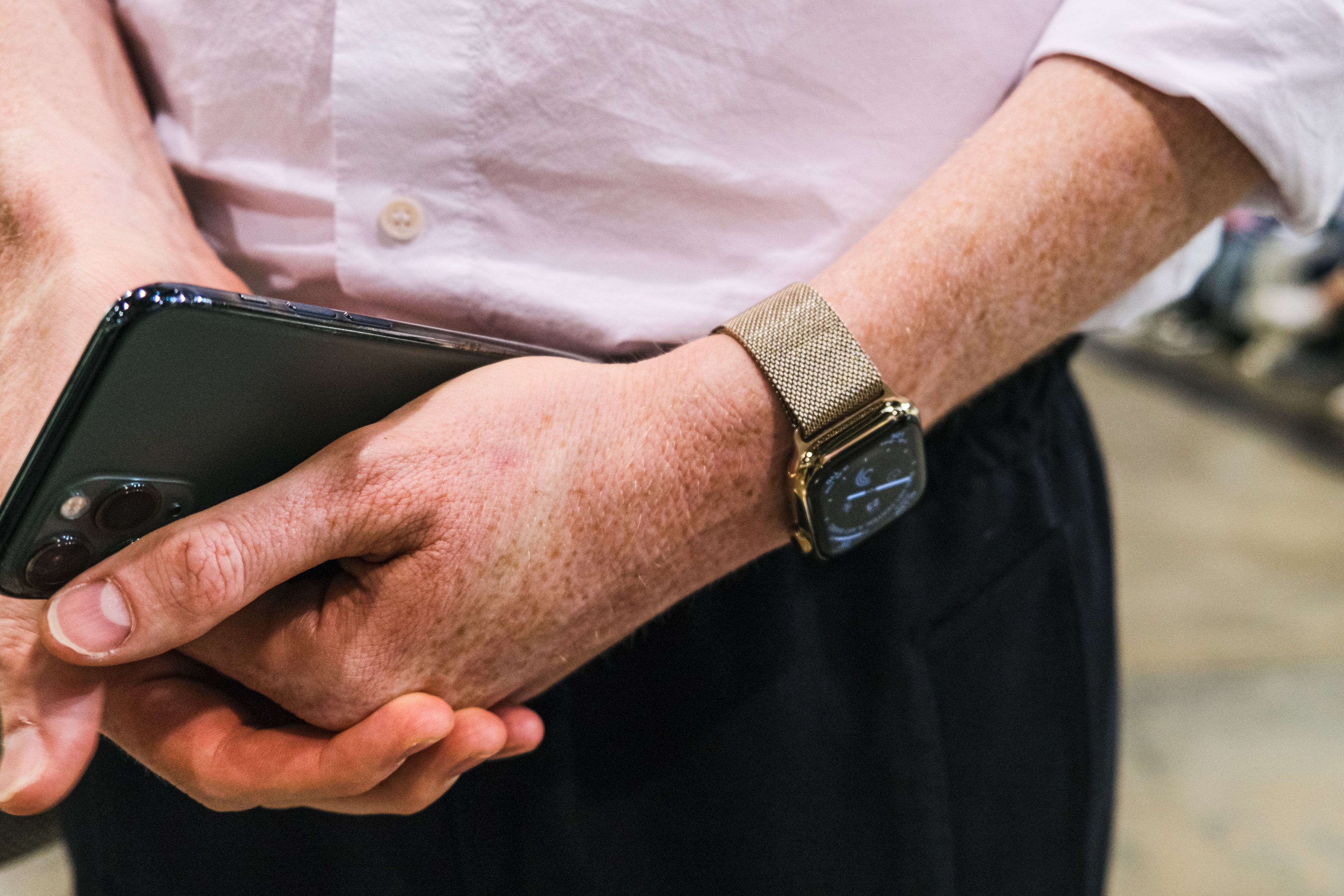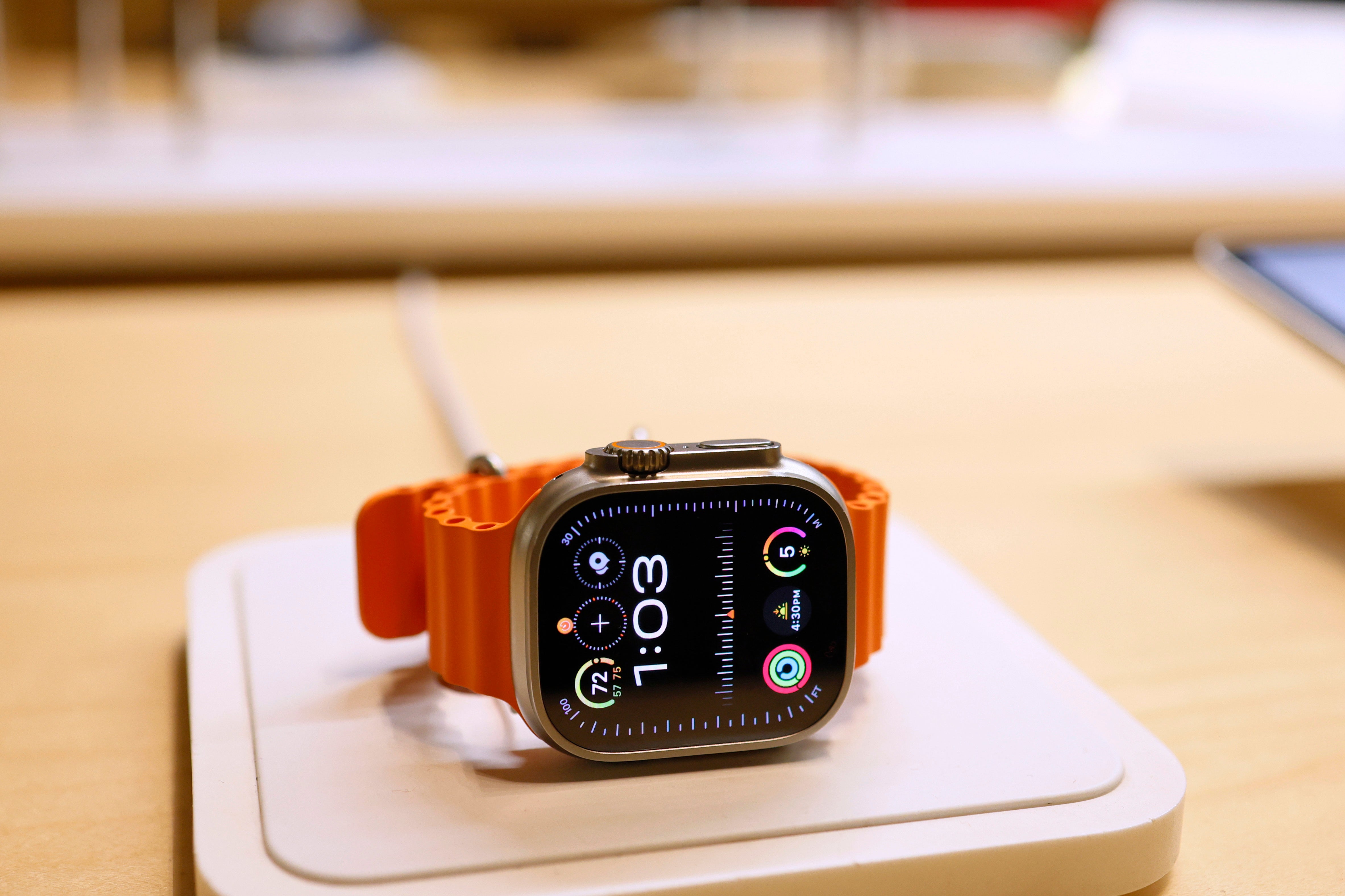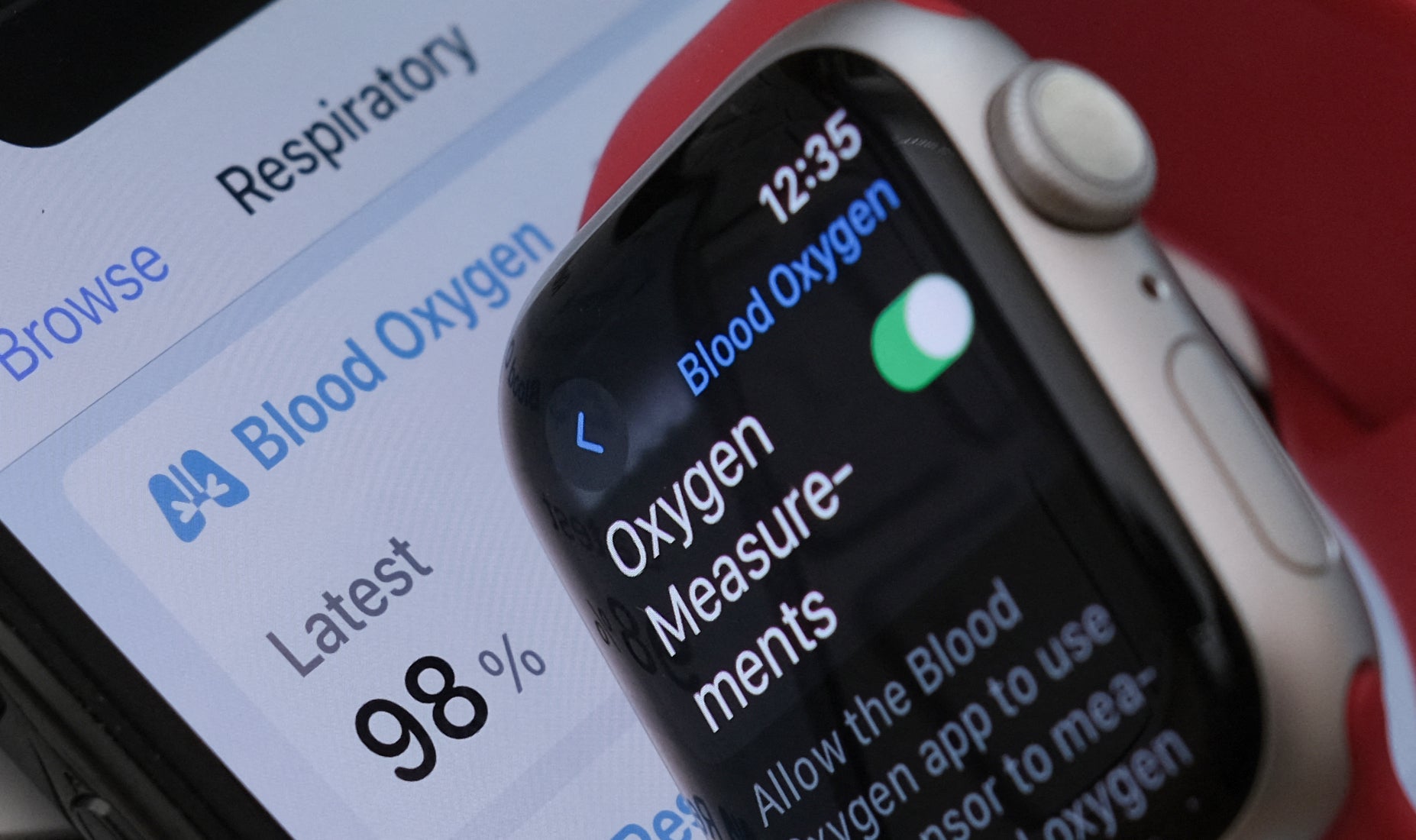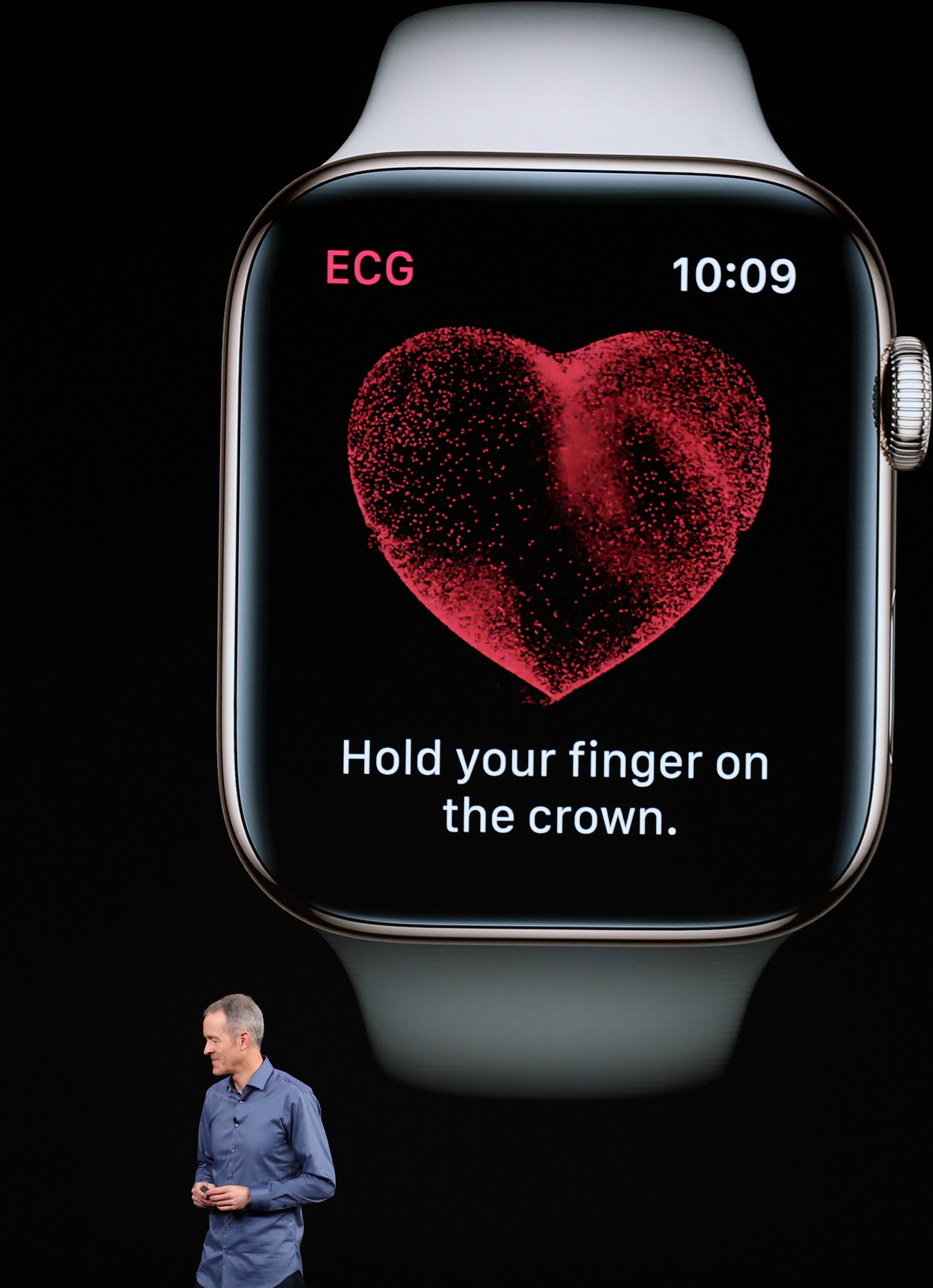Apple Watch: Users say heart features saved their life
Tim Cook is given to responding to emails from customers by telling them to ‘be well’, and his company is aiming to build more ways to help them do so

Gary Smith was on a plane and his Apple Watch was tapping him.
That’s not unusual: he’s cabin crew on a British airline, and a big fan of Apple. But the taps were alarming.
Smith was flying home from Nashville and had, shortly before, found himself feeling “quite unwell”. This wasn’t the first time – in the weeks before he’d found himself unexpectedly out of breath and tired, and he’d mentioned it to his doctors who had suggested that it was something to keep an eye on. But he had a lot of other things to keep an eye on, and a lot of flights to make – so he carried on as normal.
But now he was flying home, feeling unwell, having taken himself off to the beds that are used for crew rest on aircraft. Intending to relax with a view to feeling better, his Apple Watch did not seem happy: pinging with warnings, and when he opened them up he saw that his heart rate was bouncing up and down.
“This can’t be right,” he thought, having considered the Apple Watch’s heart features as a “gimmick of sorts”. He told himself it wasn’t accurate, felt “alarmed but not too alarmed”, went back to sleep and drove home.
A few hours later he was in A&E, being told he needed to come back for more investigation after the weekend. A few days later, he’d come back and been told he needed another referral, for an angiogram that could explain his heart’s odd behaviour and his unwell feelings.

And a day after that everything got worse. “I started going ice cold, my vision started coming and going; it was as though somebody was slowly but surely switching me off,” he told The Independent. His Apple Watch was also alarmed: his heart rate was skipping about again, and the ECG feature showed that it was not beating as it should be.
His Apple Watch had been right – something was very wrong. He was back to the hospital, in an intensive cardiac care unit, and ended up with a pacemaker. Even that pacemaker connects to his Apple gadgets: an app means that doctors can check in on him remotely, and he can keep tabs on himself.
That has proven helpful in the time since. Last year, for instance, his Apple Watch started blaring again – “I thought, oh god, here we go again”. It was back into hospital and doctors found that it had been overcompensating, doing too much work on behalf of his heart.
Before, he had thought of his Apple Watch as a helpful and useful gadget, sitting neatly along his iMac and iPhone. Now, he was so delighted with its intervention that he was writing to Tim Cook, Apple’s chief executive.
“I wanted to say a huge thank you to everyone at Apple for saving my life,” he wrote, telling his story at length. “Thanks to my watch it warned of the trouble I was in without knowing of it.
“So twice my watches helped save me!!!” he wrote. “Be under no illusion that it was a really tough time to go through and am so appreciative to be alive and get to enjoy life as much as I can!”
Cook had replied within hours. “I’m so glad you sought medical attention and are receiving the treatment you need. I wish you a full and speedy recovery,” he wrote.
“Be well,” he signed off. It was a pleasant closer but it was also an instruction that has defined much of Tim Cook’s time at Apple, which has involved not only the creation of the Watch but a whole suite of health products aimed at encouraging people to live in a healthy – more well – way.
He has said that he believes that Apple’s “greatest contribution to mankind” will be its health breakthroughs. And Apple has pointed to stories such as Gary’s in a demonstration of that fact, highlighting them in its regular keynote events.
Pip, a 45-year-old from South Wales, was one of those people, watching those keynotes. “I’m the first to race home when there’s an Apple keynote or something launching, to watch it – I’ve got my dinner set up, and my iPhone in front of me, watching it.” The health features were an interesting part of those videos, but little else: “I’m sure that’s really nice for the people who need that”, she remembers thinking while watching those introductions. It wasn’t until she underwent a similar experience that she realised that they were literally life saving.
Her story also began with a notification, her Watch telling her that her heart rate had changed and appeared to be irregular; she also had largely ignored it. She thought that she had actually been especially active recently, and wondered whether that was having an effect. But a day or two later she was having heart palpitations, and her Apple Watch was warning her that her heart was skipping beats. Days later her GP told her that she too had an irregular heartbeat.
She wrote to Cook in similarly glowing terms. “GP said that the watch is an actual life saver because I may have missed the physical symptoms and it could have been worse down the road. I should have taken more notice of the warning,” she wrote to Cook. “I just want to say thank you! You’ve no idea how life changing these devices are until something like this happens.”
He responded similarly, once again with a message to “Be well”. The suite of heart features in the Watch have been at the centre of a totally different kind of attention in recent months, after Apple was forced to pull some of them because of a patent dispute with a healthcare technology company.

But that controversial feature – the pulse oximeter, which measures the amount of oxygen in the blood – was just one of a number of new features introduced in recent years. They include the ECG and heartrate tools, but also heart studies that allow users to opt into sharing their data with researchers with a view to improving healthcare.
Apple did not intend for this to be a central part of the Watch: the first version came with a heartrate sensor, but primarily because it was a better way of measuring how many calories people were burning through their day. But Apple started receiving letters like those from Pip and Gary: more and more messages that suggested people were having their lives saved.

“The first letter that we got about it saving somebody’s life with just the heart rate monitor, we were surprised, because anybody can go watch the clock and get their heart rate,” Jeff Wiliams, Apple’s chief operating officer, told The Independent 2019. “But then we started getting more and more and we realised we had a huge chance and maybe even an obligation to do more.
“That led us down the path to do everything including medically regulated apps. Health is such an important dimension. But it’s just one dimension of the Watch. It does so much more, from telling the time to sending messages or making calls and so on. If you tried to sell a heart rate monitor to alert you to problems, you know, 12 people would buy it.”
Apple’s inbox has no doubt filled with many more emails since; yet more emails to Tim Cook. And at the same time it is no doubt working on more features that will allow people to be more well: rumours have suggested that it is working on sensors that can spot high blood pressure, sleep apnea and diabetes.
Join our commenting forum
Join thought-provoking conversations, follow other Independent readers and see their replies
Comments
Bookmark popover
Removed from bookmarks